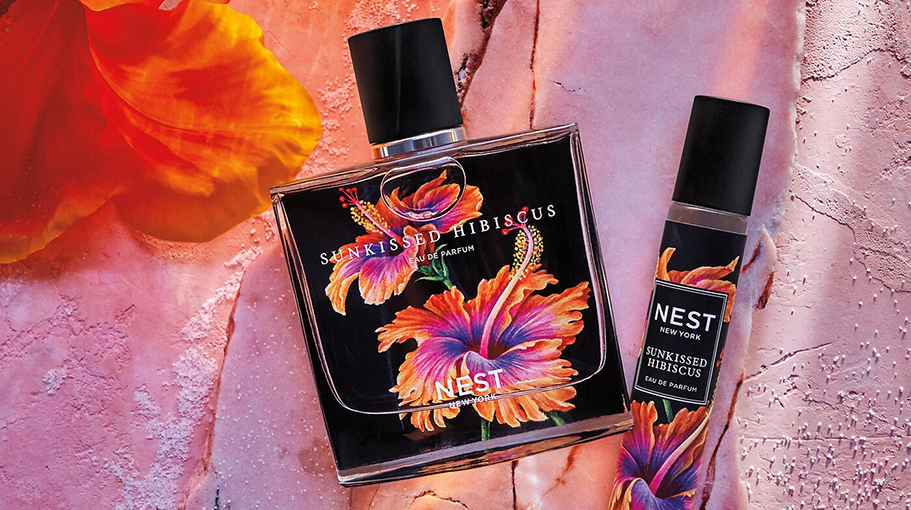Table of Contents
In the realm of holistic wellness, there exists a fragrant world of healing and relaxation known as aromatherapy. At the heart of this practice are essential oils derived from various sources, including flowers. The enchanting scents of these botanical extracts hold the power to soothe, uplift and heal both body and mind. In this article, we will explore the fascinating world of aromatherapy and essential oils, with a focus on how flower scents are harnessed to promote well-being and balance in our lives.
In the realm of holistic wellness, there exists a fragrant world of healing and relaxation known as aromatherapy. At the heart of this practice are essential oils derived from various sources, including flowers. The enchanting scents of these botanical extracts hold the power to soothe, uplift and heal both body and mind. In this article, we will embark on a journey through the fascinating world of aromatherapy and essential oils, with a special focus on how flower scents are harnessed to promote well-being and balance in our lives.
Aromatherapy, with its roots in ancient civilizations, has seen a resurgence in popularity as people seek natural and holistic approaches to health and wellness. At its core, aromatherapy involves the use of essential oils—highly concentrated plant extracts—to harness the therapeutic properties of various botanicals. These essential oils are obtained through processes such as steam distillation or cold pressing, carefully preserving the volatile aromatic compounds that give each oil its unique scent and healing properties.
Flower-derived essential oils are among the most cherished and sought-after in aromatherapy. Each flower carries its own distinct fragrance and therapeutic benefits. For example, the gentle, floral aroma of lavender essential oil is renowned for its calming and soothing effects on the nervous system. Lavender is often used to alleviate stress, anxiety and insomnia, promoting a sense of tranquility and restful sleep.
The captivating scent of rose essential oil is not only exquisite but also deeply therapeutic. Known as the “queen of flowers,” rose essential oil is associated with feelings of love and emotional balance. Its aroma has the power to uplift the spirits, relieve feelings of sadness or grief and promote self-acceptance and self-love.
Chamomile essential oil, derived from the chamomile flower, offers a gentle and comforting fragrance. It is celebrated for its anti-inflammatory and calming properties, making it a popular choice for soothing skin irritations and promoting relaxation.
Jasmine essential oil, extracted from the fragrant jasmine flower, carries a rich, sweet scent that is both sensual and uplifting. It is often used to enhance mood, reduce anxiety and boost confidence and self-esteem. Jasmine’s exotic aroma is also associated with enhancing romantic feelings and intimacy.
The application of flower-scented essential oils in aromatherapy is diverse and adaptable. These oils can be used in various ways, including diffusion, topical application or inhalation. Aromatherapists and enthusiasts often customize blends to address specific wellness goals, whether it’s achieving relaxation, enhancing focus and concentration or relieving physical discomfort.
Aromatherapy doesn’t just cater to the senses; it offers holistic benefits for the body and mind. Research suggests that certain essential oils may have antibacterial, anti-inflammatory and mood-regulating properties. When incorporated into a daily wellness routine, flower-derived essential oils can contribute to a greater sense of balance, harmony and overall well-being.
In conclusion, the world of aromatherapy and essential oils, with its captivating array of flower scents, offers a holistic approach to wellness and self-care. These botanical extracts, cherished for their therapeutic properties and enchanting fragrances, provide a fragrant pathway to relaxation, emotional balance and healing. As we explore the diverse world of flower-derived essential oils, we unlock the potential for enhancing our lives and nurturing our connection to the natural world.
To expand your knowledge on this subject, make sure to read on at this location: Secrets Of Aromatherapy – (holistic Secrets) By Jennie Harding …
The Essence of Aromatherapy
Aromatherapy is an ancient practice that harnesses the therapeutic properties of aromatic plant extracts or essential oils, to enhance physical and emotional health. These concentrated oils are extracted through various methods, such as steam distillation or cold pressing and they capture the very essence of the plant, including its fragrance and healing properties.
Certainly! Here’s an extended idea that delves deeper into aromatherapy and its wide-ranging benefits:
Exploring the World of Aromatherapy: A Fragrant Path to Well-Being
Aromatherapy is a timeless and holistic practice that invites us to explore the remarkable healing potential of nature’s aromatic gifts. This ancient art harnesses the therapeutic properties of aromatic plant extracts, known as essential oils, to promote not only physical well-being but also emotional harmony. Let’s dive into the fascinating world of aromatherapy and uncover the secrets of these potent elixirs.
1. Nature’s Essence: Essential oils are the heart and soul of aromatherapy. They are meticulously extracted from various parts of aromatic plants, including flowers, leaves, bark and roots. Each essential oil carries the very essence of the plant it’s derived from, encapsulating its fragrance and a myriad of healing properties.
2. The Art of Extraction: These precious oils are obtained through meticulous methods such as steam distillation, cold pressing or solvent extraction. Steam distillation, for instance, involves carefully heating plant material to release its aromatic compounds, which are then condensed into a pure, concentrated essential oil. The extraction method preserves the integrity of the oil, ensuring it retains its therapeutic qualities.
3. Physical Well-Being: Aromatherapy offers a diverse range of physical health benefits. Different essential oils have unique properties that can alleviate ailments and enhance overall wellness. For example, lavender oil is renowned for its calming and soothing effects, making it ideal for stress relief and promoting restful sleep. Eucalyptus oil, on the other hand, is valued for its respiratory benefits and is often used to ease congestion.
4. Emotional Harmony: Beyond physical health, aromatherapy plays a profound role in emotional well-being. Inhaling the scent of essential oils can trigger emotional responses by stimulating the limbic system in the brain, which is closely linked to emotions and memories. Citrus oils like orange and bergamot can uplift the spirits and reduce feelings of anxiety, while rose oil is associated with promoting self-love and emotional healing.
5. Versatile Applications: Aromatherapy can be incorporated into daily life in various ways. You can diffuse essential oils in your living space to create a tranquil atmosphere, add a few drops to a relaxing bath or blend them with carrier oils for massage therapy. Additionally, personal inhalers and topical applications offer convenient ways to harness the benefits of aromatherapy on the go.
6. Holistic Approach: Aromatherapy embraces a holistic perspective on health, recognizing the interconnectedness of mind, body and spirit. It encourages individuals to explore the profound effects of scent on their overall well-being, providing a gentle yet potent path to self-care and healing.
7. Caution and Expertise: While aromatherapy offers a wealth of therapeutic possibilities, it’s essential to use essential oils with caution. Some oils may cause skin sensitivities or adverse reactions when used improperly. Seeking guidance from a certified aromatherapist or conducting thorough research on specific oils is advisable to ensure safe and effective use.
In summary, aromatherapy is a timeless practice that empowers us to harness the gifts of nature for our physical and emotional well-being. Through the careful extraction of essential oils and their thoughtful application, we embark on a fragrant journey toward balance, vitality and harmony in our lives.
Additionally, you can find further information on this topic by visiting this page: Aromatherapy – Bethesda Salt Cave
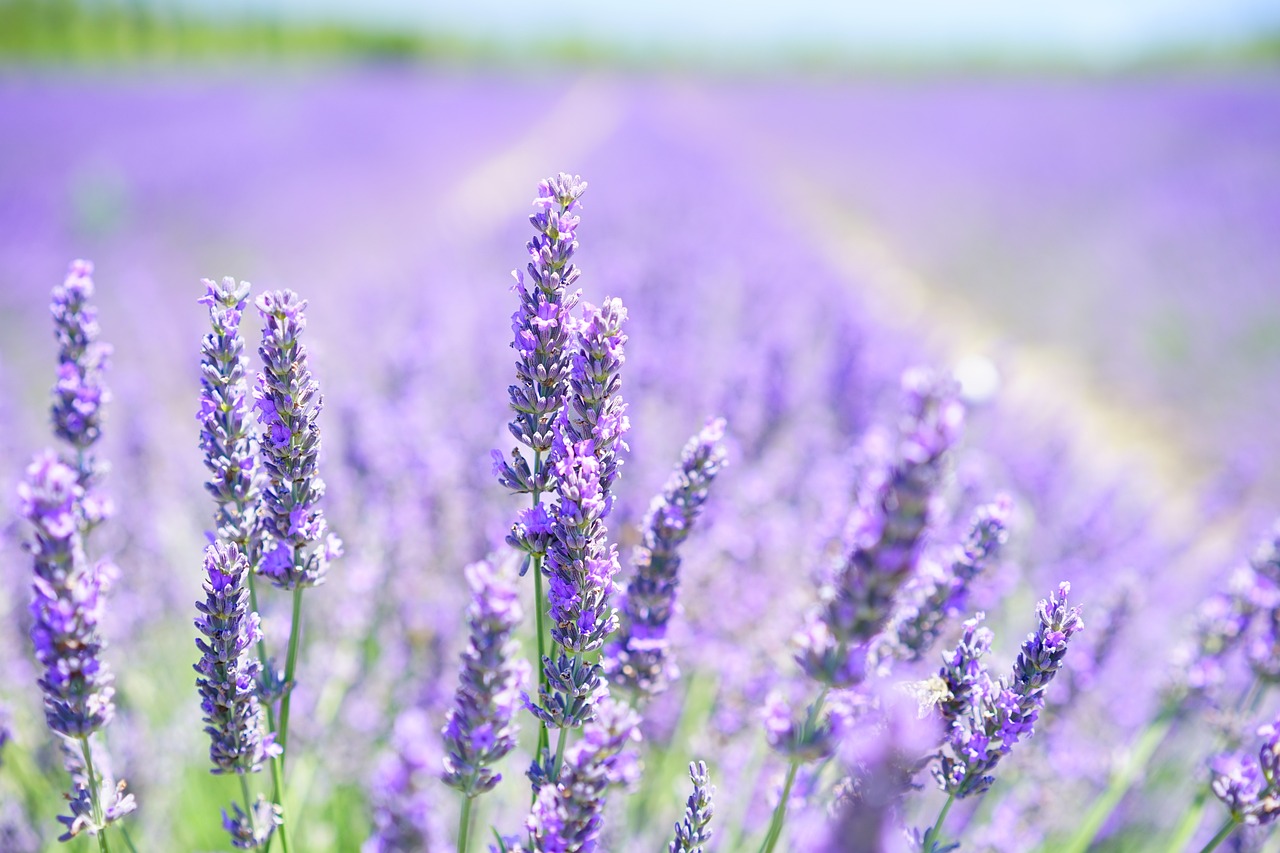
Flower Power: The Magic of Floral Scents
Flowers have long been revered for their beauty and symbolic significance, but their scents also hold a special place in aromatherapy. Each flower’s aroma carries a unique and potent energy that can impact our emotions, alleviate stress and enhance our overall well-being. Here are a few examples of flowers and their associated scents in aromatherapy:
Flowers have long been revered for their beauty and symbolic significance, but their scents also hold a special place in aromatherapy. Each flower’s aroma carries a unique and potent energy that can impact our emotions, alleviate stress and enhance our overall well-being. Here are a few examples of flowers and their associated scents in aromatherapy:
Lavender: Lavender is perhaps one of the most well-known flowers in aromatherapy. Its soothing and calming scent helps reduce anxiety and promote relaxation. The aroma of lavender can transport you to a tranquil garden, easing both mental and physical tension. It’s often used to improve sleep quality and manage stress.
Rose: The gentle, sweet scent of roses has a powerful effect on the heart and emotions. Rose essential oil is used in aromatherapy to inspire feelings of love, self-compassion and emotional healing. Inhaling the aroma of rose can help boost self-esteem and open the heart chakra, fostering emotional balance.
Jasmine: Jasmine’s intoxicating and exotic fragrance is known for its aphrodisiac properties. In aromatherapy, it’s used to enhance sensuality and reduce emotional barriers. The scent of jasmine can uplift the spirit and promote a sense of optimism, making it an excellent choice for combating depression and anxiety.
Peppermint: While not a traditional flower, the strong, invigorating scent of peppermint is derived from its leaves and is widely used in aromatherapy. Peppermint essential oil is known for its ability to clear the mind, boost concentration and alleviate headaches. Inhaling this refreshing aroma can provide an instant mental and physical energy boost.
Chamomile: The soft, apple-like scent of chamomile flowers is deeply relaxing and soothing. Chamomile essential oil is used in aromatherapy to reduce stress, anxiety and promote restful sleep. It’s also known for its anti-inflammatory properties, making it beneficial for both emotional and physical well-being.
Eucalyptus: Eucalyptus trees produce a scent that is crisp and invigorating. Eucalyptus essential oil is commonly used in aromatherapy to clear respiratory congestion, making it an excellent choice during cold and flu season. The aroma of eucalyptus can also provide mental clarity and promote a sense of vitality.
Ylang-Ylang: Ylang-ylang, with its sweet and floral scent, is used in aromatherapy to reduce stress and anxiety while increasing sensuality and self-confidence. It’s often employed to balance emotions, making it a valuable addition to blends aimed at emotional healing and personal growth.
In the world of aromatherapy, flowers and their scents are like keys to unlocking various aspects of our emotional and physical well-being. Each flower’s unique aroma offers a journey of healing, allowing us to tap into the vast potential of nature’s fragrant gifts to improve our lives and achieve a harmonious balance between mind, body and spirit.
You can also read more about this here: Notes of note: Aromatherapy in fragrance – Sana Jardin
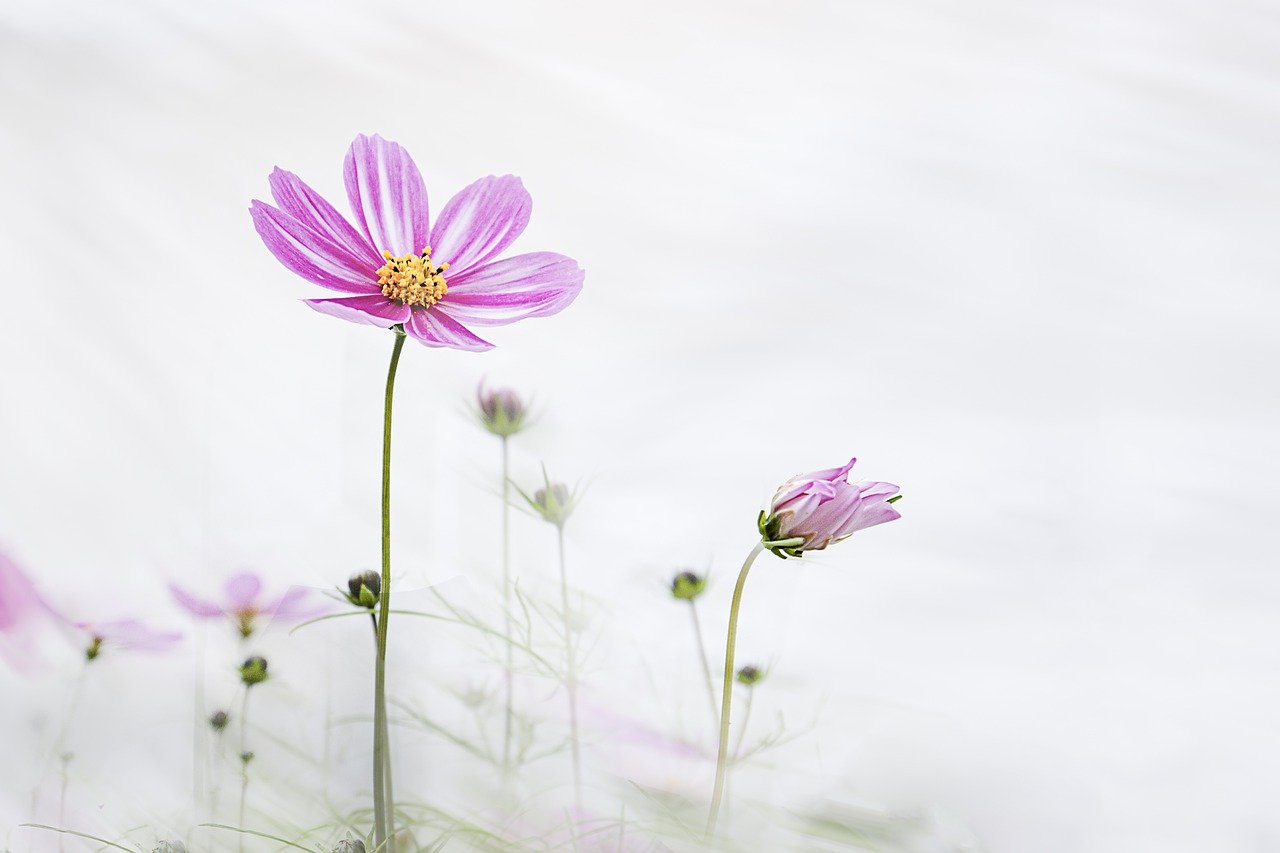
Lavender (Lavandula angustifolia)
Known for its calming and soothing properties, lavender essential oil is often used to reduce anxiety and promote relaxation. Its sweet, floral scent is a favorite in aromatherapy for creating a sense of tranquility.
Harnessing the Tranquility of Lavender:
Lavender essential oil, with its gentle and aromatic embrace, is a treasure trove of calm and tranquility. This cherished oil transcends its delightful fragrance to offer a wealth of benefits for both the body and the mind, making it a cornerstone of aromatherapy and well-being practices worldwide.
1. Aromatic Alchemy for Stress Reduction:
- Nature’s Stress Buster: Lavender essential oil has earned its reputation as a natural stress reliever. The delicate floral notes of lavender have an innate ability to calm the mind, soothe frayed nerves and alleviate the burdens of a hectic day.
- Relaxation Elixir: Whether diffused in the air, added to a warm bath or applied topically (diluted with a carrier oil), lavender essential oil transforms any environment into a sanctuary of relaxation. Its scent has the power to ease tension, lower stress levels and promote an overall sense of well-being.
2. The Sleep Inducer:
- Slumber’s Best Friend: Lavender’s soothing properties extend to the realm of sleep. Inhaling its aroma before bedtime can encourage a restful night’s sleep. A few drops on a pillow or in a diffuser create a tranquil bedtime ritual that signals the body to unwind and embrace dreams.
- A Natural Sedative: Lavender essential oil’s sedative effects on the nervous system are well-documented. It can help alleviate insomnia, restless nights and even symptoms of anxiety disorders.
3. Mindfulness and Emotional Balance:
- Easing Anxiety: Lavender oil is a trusted companion in alleviating anxiety. Whether inhaled directly from the bottle during a moment of stress or incorporated into meditation and mindfulness practices, it has a grounding effect that fosters emotional equilibrium.
- Combatting Nervousness: The sweet, floral scent of lavender acts as a buffer against nervousness. When life’s demands become overwhelming, a few drops of lavender essential oil can offer a gentle reprieve.
4. Versatile Well-Being Ally:
- Skin Soother: Beyond its calming properties, lavender oil is known for its soothing effects on the skin. It is often used to relieve minor skin irritations, sunburn and insect bites. When diluted with a carrier oil, it becomes a gentle and natural remedy.
- Headache Relief: Lavender oil can also be applied topically to the temples and forehead to help alleviate tension headaches.
In the world of aromatherapy, lavender essential oil reigns as a versatile and cherished elixir, a fragrant guardian of tranquility. Its delicate floral notes have the remarkable ability to melt away stress, usher in restful sleep and cultivate emotional balance. As you explore the soothing embrace of lavender oil, you’ll discover not only its aromatic allure but also its profound impact on your journey to well-being and serenity.
Explore this link for a more extensive examination of the topic: Influence of Fragrances on Human Psychophysiological Activity …

Rose (Rosa damascena)
The rich and romantic aroma of rose essential oil is celebrated for its ability to uplift the spirit and enhance self-love. It is often used in aromatherapy to reduce stress and promote emotional balance.
The rich and romantic aroma of rose essential oil is celebrated for its ability to uplift the spirit and enhance self-love and its history in this regard is as captivating as its scent. Dating back centuries, the rose has been cherished not only for its physical beauty but also for its profound effects on our emotional and mental well-being. Here, we explore the deep-rooted tradition of rose essential oil and its therapeutic benefits in promoting inner harmony and emotional wellness.
Ancient Roots: The use of rose in aromatherapy and perfumery dates back to ancient civilizations, including the Greeks and Romans. It was revered as the flower of love and associated with Aphrodite, the goddess of love and beauty. Its scent was used to enhance sensuality, romance and emotional connection.
Symbol of Love: Roses have long been regarded as symbols of love and this symbolism extends to rose essential oil. Its exquisite fragrance is believed to awaken feelings of love and self-compassion. A few drops of rose oil in a diffuser can create an ambiance of love and harmony, making it a popular choice for romantic settings.
Balancing Emotions: Rose essential oil is recognized for its potential to balance emotions. In aromatherapy, it is often used to alleviate stress, anxiety and feelings of sadness or grief. The aroma of rose can soothe the mind, promote relaxation and help restore emotional equilibrium.
Self-Care and Self-Love: Incorporating rose essential oil into your self-care routine can be a powerful act of self-love. Its fragrance encourages self-acceptance and self-nurturing. It’s a reminder to prioritize your well-being and engage in practices that bring you joy and peace.
Stress Reduction: The aroma of rose oil has been shown to reduce levels of the stress hormone cortisol. Inhaling its scent can induce a sense of calm and tranquility, making it an excellent choice for aromatherapy during meditation or relaxation exercises.
Skincare and Beauty: Beyond its emotional benefits, rose essential oil is celebrated for its skincare properties. It is often used in beauty products for its ability to nourish and rejuvenate the skin. Whether in facial serums or luxurious bath oils, rose oil enhances the overall experience of self-pampering.
Cultivating Emotional Resilience: Regular use of rose essential oil can contribute to emotional resilience over time. Its soothing and uplifting properties can help you navigate life’s challenges with greater ease and maintain a positive outlook.
Personal Rituals: Incorporating rose essential oil into personal rituals, such as massage, baths or daily skincare routines, can deepen the connection between your mind, body and spirit. It’s an opportunity to pause, breathe and center yourself in the present moment.
In essence, the enchanting aroma of rose essential oil is not merely a sensory delight but a profound tool for emotional well-being and self-care. It carries with it the timeless wisdom of centuries, reminding us of the enduring power of nature to nurture both our outer and inner selves. Whether you use it for relaxation, self-love or simply to infuse your surroundings with its beauty, rose essential oil is a fragrant reminder of the enduring bond between humanity and the natural world.
You can also read more about this here: Essential Oils vs Absolutes Oils |Floral Essential Oils
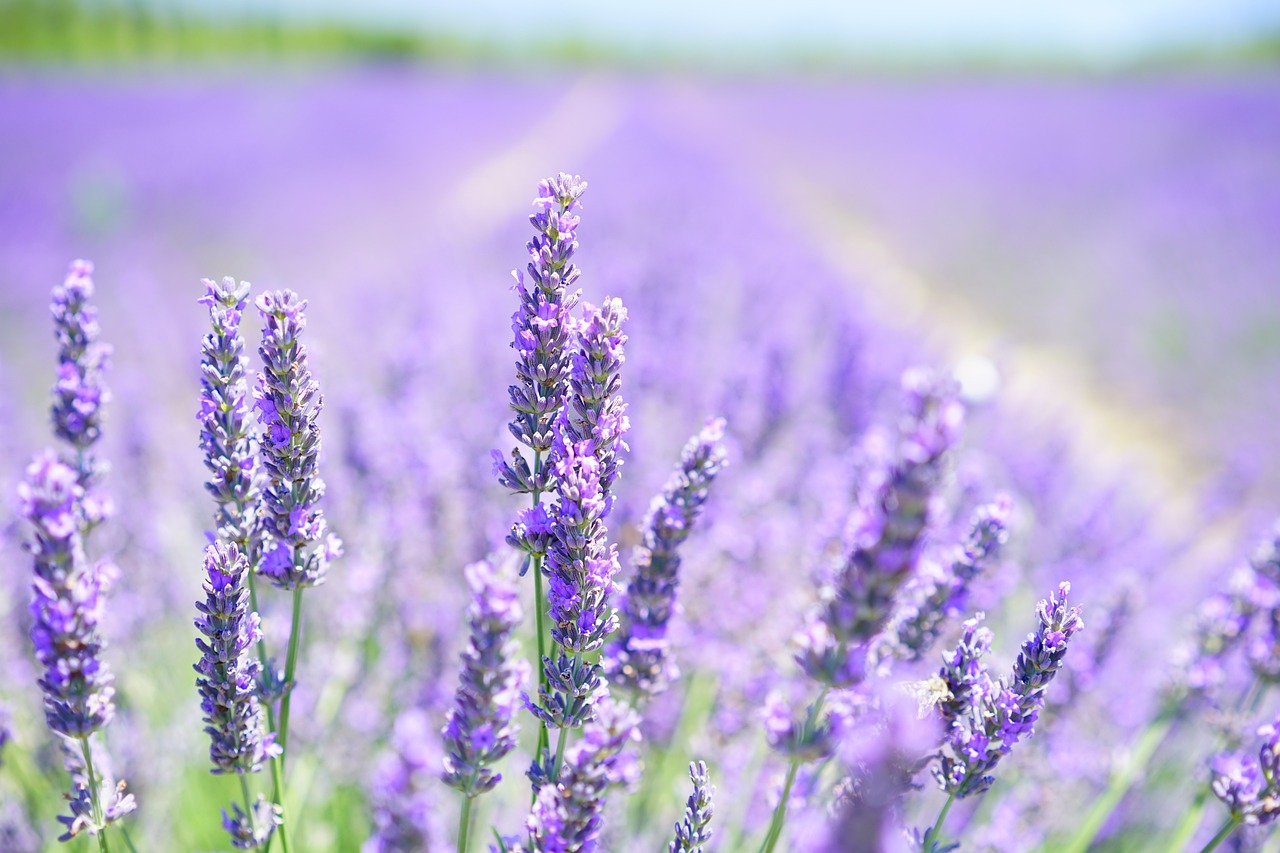
Chamomile (Matricaria chamomilla)
Chamomile essential oil, with its sweet and apple-like fragrance, is renowned for its calming and anti-inflammatory properties. It is a popular choice for soothing anxiety and promoting restful sleep.
Chamomile essential oil, derived from the delicate chamomile flowers, has earned a well-deserved reputation as a natural remedy for promoting relaxation and alleviating various health concerns. Its sweet, apple-like fragrance is not only pleasing to the senses but also carries a multitude of benefits for both mental and physical well-being.
Soothing Anxiety and Stress Relief: Chamomile essential oil is often considered one of the best natural solutions for calming the mind and reducing anxiety. When inhaled or applied topically, it can help ease the symptoms of generalized anxiety disorder, social anxiety and everyday stress. Its gentle, floral aroma has a tranquilizing effect on the nervous system, promoting a sense of calm and inner peace.
Promoting Restful Sleep: For those struggling with insomnia or disrupted sleep patterns, chamomile essential oil can be a true savior. Its sedative properties make it an excellent choice for creating a bedtime routine that signals relaxation to the body and mind. A few drops of chamomile oil added to a warm bath or applied to the pillow can help induce a restful slumber.
Alleviating Inflammation: Beyond its aromatic charm, chamomile essential oil boasts potent anti-inflammatory properties. It contains compounds like chamazulene and alpha-bisabolol, which can effectively reduce inflammation when applied topically. It’s often used to soothe skin conditions like eczema, psoriasis and minor burns, making it a valuable addition to skincare routines.
Digestive Aid: Chamomile tea is renowned for its digestive benefits and chamomile essential oil offers a concentrated form of these advantages. When diluted and massaged onto the abdomen, it can ease symptoms of indigestion, bloating and irritable bowel syndrome. Chamomile’s gentle nature makes it suitable for soothing even the most sensitive stomachs.
Relieving Menstrual Discomfort: For women experiencing menstrual cramps and discomfort, chamomile essential oil can offer relief. A warm compress infused with chamomile oil can be placed on the lower abdomen to reduce cramping and ease tension, allowing for a more comfortable menstrual experience.
Incorporating chamomile essential oil into your wellness routine is a simple and enjoyable way to benefit from its many advantages. Whether you’re seeking mental tranquility, improved sleep or relief from physical discomfort, chamomile’s sweet, apple-like scent and therapeutic properties make it a valuable tool in your holistic health toolkit. Remember to use it responsibly, in the appropriate dilutions and consult with a healthcare professional if you have any underlying health concerns or are pregnant, as some essential oils may have contraindications.
To delve further into this matter, we encourage you to check out the additional resources provided here: Antioxidant, Antimicrobial and Antiviral Properties of Herbal …
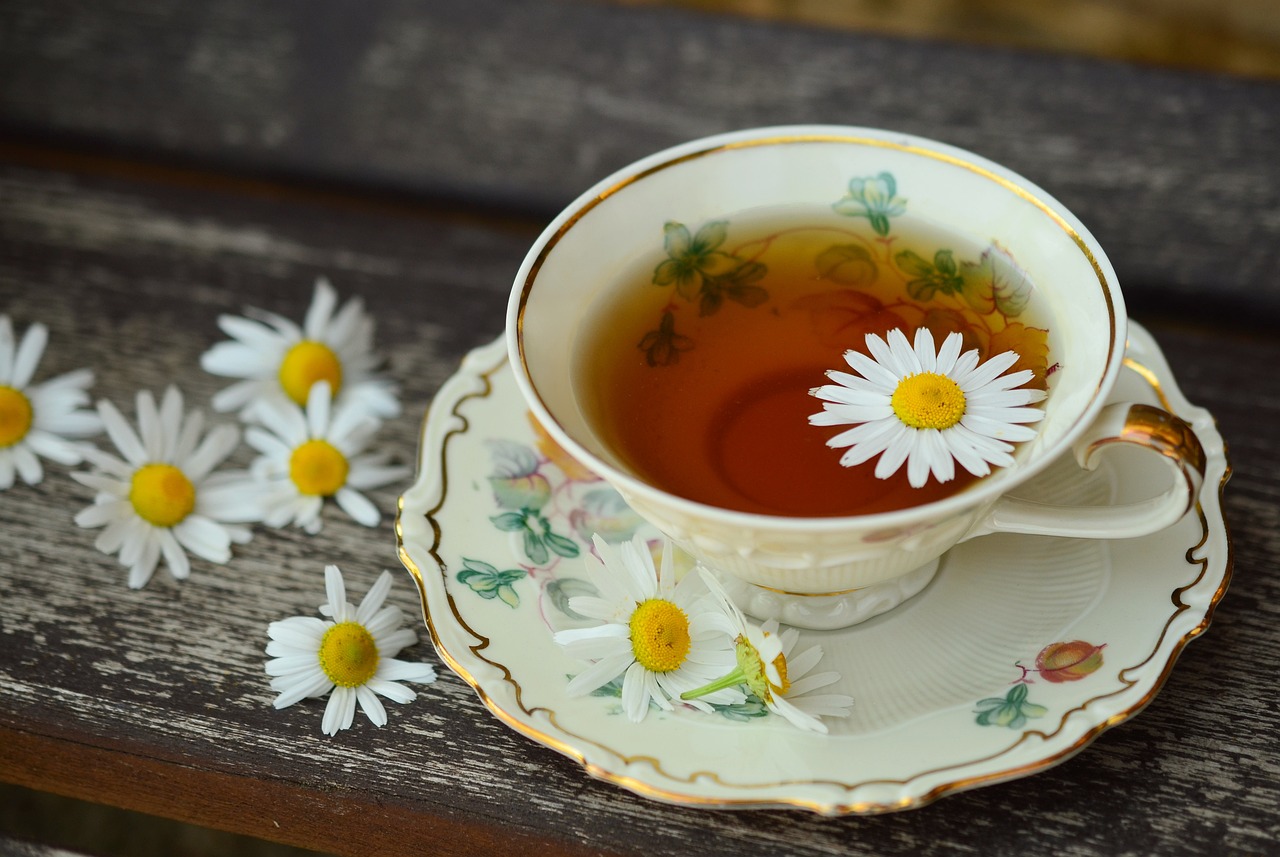
Jasmine (Jasminum officinale)
The exotic and sensual scent of jasmine essential oil is known for its aphrodisiac qualities and its ability to boost confidence and alleviate depression. It is often used to enhance mood and sensuality.
The exotic and sensual scent of jasmine essential oil is renowned for more than just its aphrodisiac qualities and mood-enhancing effects. This aromatic treasure has been cherished for centuries for its multifaceted benefits. Beyond igniting passion and boosting confidence, jasmine oil possesses therapeutic properties that extend to the realms of holistic well-being.
Its ability to alleviate depression and reduce stress makes it a valuable tool in the fight against mental and emotional challenges. The mere inhalation of its intoxicating aroma can transport you to a serene oasis, calming nerves and soothing anxiety. As a result, jasmine essential oil is often incorporated into relaxation techniques and mindfulness practices.
Moreover, this precious oil is celebrated for its skincare benefits. Its natural antiseptic properties make it a potent ingredient in beauty products, aiding in the treatment of acne and skin irritations. It’s also renowned for its skin rejuvenation properties, promoting a youthful complexion and reducing the appearance of scars and blemishes.
In essence, jasmine essential oil transcends its reputation as a sensuous aroma. It emerges as a versatile companion on the journey to emotional well-being, self-assurance and physical vitality, making it an invaluable addition to your holistic self-care routine. Explore its myriad benefits and let jasmine oil be your guide to a harmonious and fragrant life.
Should you desire more in-depth information, it’s available for your perusal on this page: ESPA Signature Blends Collection | ESPA US

Aromatherapy Applications
Aromatherapy can be incorporated into our daily lives through various methods, including:
Aromatherapy can be incorporated into our daily lives through various methods, including:
Diffusers: Utilizing essential oil diffusers is one of the most popular and convenient ways to infuse your environment with therapeutic scents. These devices disperse essential oils into the air, creating a calming or invigorating atmosphere depending on the oils used. They are perfect for homes, offices and even in your car, helping to enhance your mood and reduce stress levels throughout the day.
Topical Application: Applying diluted essential oils directly to the skin is another effective method of aromatherapy. Whether in the form of massage oils, lotions or roll-on blends, topical application allows the oils to be absorbed through the skin, providing both a soothing fragrance and potential physical benefits like pain relief or skin nourishment.
Inhalation: Simple inhalation techniques can be easily integrated into daily routines. You can add a few drops of essential oil to a tissue or handkerchief and inhale deeply when needed for a quick pick-me-up. This method is particularly useful for combating headaches, congestion or stress during a hectic workday.
Bathing: Transform your daily bath or shower routine into a spa-like experience by adding a few drops of essential oils to the water or a washcloth. The steam and warm water will help the oils disperse, filling your bathroom with a delightful aroma and creating a calming ambiance to start or end your day.
Scented Products: Many daily-use products are now infused with essential oils. You can choose scented candles, soaps, shampoos and even laundry detergents with your preferred aromas to create a consistent sensory experience throughout your day.
Yoga and Meditation: Enhance your yoga or meditation practice by incorporating aromatherapy. Diffusing calming oils like lavender or frankincense in your practice space can deepen relaxation and mindfulness, helping you to connect with your inner self on a profound level.
Aromatherapy Jewelry: Wearable aromatherapy jewelry, such as diffuser necklaces or bracelets, allows you to carry your favorite scents with you wherever you go. These pieces often have small compartments to hold essential oil-soaked pads, ensuring a subtle and consistent fragrance throughout your day.
Cooking and Culinary Use: Certain essential oils are safe for culinary purposes. Infusing your meals with aromatic oils like lemon, rosemary or basil can not only add flavor but also offer potential digestive and mood-enhancing benefits.
Custom Blends: Personalize your aromatherapy experience by creating custom essential oil blends tailored to your specific needs. Whether it’s a blend for relaxation, focus or energy, mixing oils allows you to experiment and find what works best for you.
Bedtime Rituals: Incorporate aromatherapy into your bedtime routine by diffusing calming oils, such as lavender or chamomile, in your bedroom. The soothing scents can help improve sleep quality and promote a sense of tranquility as you wind down for the night.
By integrating these methods into your daily life, you can harness the power of aromatherapy to enhance your well-being, boost your mood, reduce stress and create a more enjoyable and balanced lifestyle. Whether it’s a moment of relaxation during a busy day or a dedicated self-care ritual, aromatherapy offers a versatile and accessible way to experience the benefits of essential oils.
Should you desire more in-depth information, it’s available for your perusal on this page: Aromatherapy Essential Oils Guide | Young Living Blog
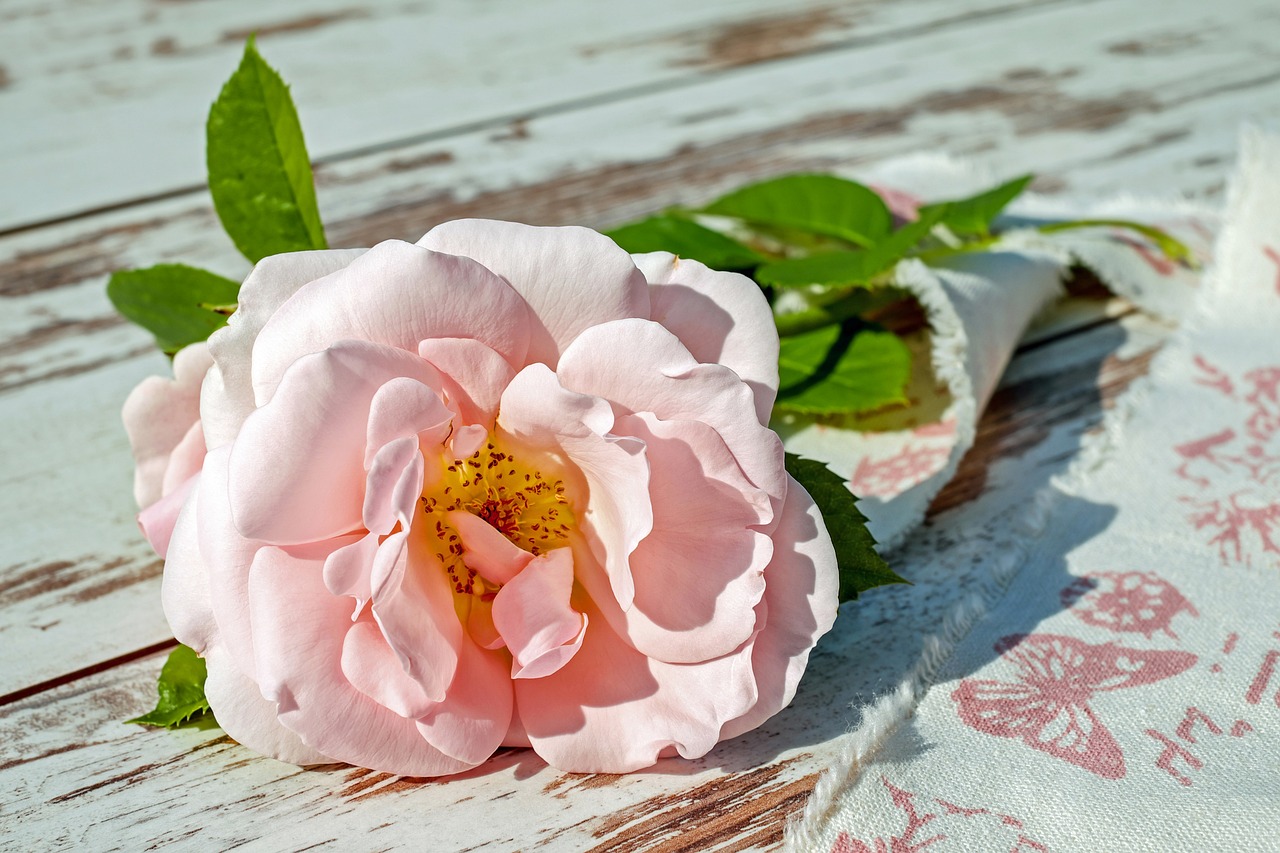
Diffusion
Aromatherapy diffusers disperse essential oils into the air, allowing you to inhale the fragrance. This method is effective for creating a calming atmosphere in your home or workspace.
Enhancing Well-Being with Aromatherapy Diffusers:
Aromatherapy diffusers, hailed for their ability to infuse the air with the soothing scents of essential oils, offer more than just a pleasant fragrance. They are potent tools for promoting overall well-being and enhancing the ambiance of your home or workspace:
Stress Reduction: Inhaling essential oils through diffusers can have a profound impact on stress levels. Scents like lavender, chamomile and frankincense are renowned for their calming properties, helping to alleviate anxiety and promote relaxation. As the gentle aroma fills the room, it can create a sanctuary of tranquility, making it easier to unwind after a long day.
Improved Sleep: Aromatherapy diffusers are prized for their sleep-enhancing benefits. Essential oils such as lavender, cedarwood and valerian root have sedative effects that can improve the quality of your sleep. Diffusing these oils in your bedroom before bedtime can usher in a restful night’s slumber.
Mood Elevation: Different essential oils possess mood-lifting properties. Citrus scents like lemon and sweet orange are known for their invigorating and uplifting effects. When diffused, these oils can elevate your spirits, enhance focus and create a more positive atmosphere, especially in workspaces.
Respiratory Health: Aromatherapy diffusers can be a boon for respiratory health. Eucalyptus and peppermint oils, for instance, are known for their decongestant and anti-inflammatory properties. Diffusing these oils can help clear nasal passages and ease breathing, particularly during cold and allergy seasons.
Enhanced Concentration: When you need to boost concentration and mental clarity, essential oils like rosemary, peppermint and lemon can be your allies. Diffusing these oils in a study or work area can sharpen your focus and productivity.
Customized Blends: Aromatherapy diffusers allow you to experiment with custom oil blends tailored to your specific needs. You can combine oils to create your own unique fragrance profiles, catering to your preferences and wellness goals.
A Natural Air Freshener: Unlike synthetic air fresheners, which often contain harsh chemicals, essential oil diffusers provide a natural and chemical-free way to freshen the air. They not only mask unpleasant odors but also purify the air by killing airborne pathogens and neutralizing pollutants.
Holistic Healing: Aromatherapy, when used in conjunction with other holistic practices like meditation or yoga, can amplify their benefits. The calming and grounding scents from the diffuser can deepen your mindfulness practice and enhance the mind-body connection.
Accessible Wellness: Aromatherapy diffusers make wellness accessible to everyone. Whether you’re a seasoned practitioner or new to aromatherapy, diffusers are user-friendly and require minimal effort to enjoy their benefits.
In sum, aromatherapy diffusers offer a multifaceted approach to improving your physical, emotional and mental well-being. By harnessing the power of essential oils and dispersing them into your living or working space, you can create an environment that nurtures relaxation, health and vitality. So, consider incorporating the gentle embrace of aromatherapy diffusers into your daily routine and elevate the quality of your life one fragrant breath at a time.
Don’t stop here; you can continue your exploration by following this link for more details: The 5 Best Essential Oil Diffusers of 2023 | Reviews by Wirecutter
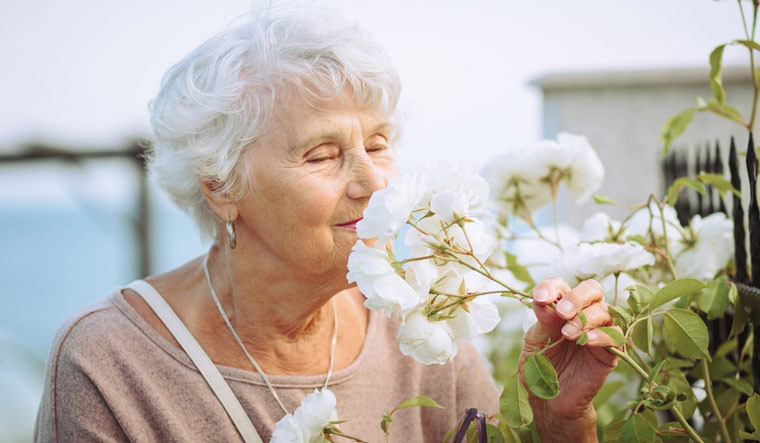
Massage
Diluted essential oils can be used in massage therapy to promote relaxation and relieve muscle tension. The combination of touch and scent enhances the therapeutic experience.
Certainly, let’s expand on the idea of using diluted essential oils in massage therapy to enhance relaxation and relieve muscle tension, focusing on the benefits and different applications:
Personalized Aromatherapy: Diluted essential oils offer a versatile tool for massage therapists to provide personalized aromatherapy experiences. Each essential oil has its unique properties, ranging from lavender for relaxation to eucalyptus for invigoration. Tailoring the essential oil blend to the client’s specific needs can greatly enhance the effectiveness of the massage.
Holistic Healing: The use of diluted essential oils in massage therapy goes beyond just physical relaxation. It engages the senses, creating a holistic healing experience. As clients inhale the soothing scents during the massage, their minds can enter a state of tranquility, reducing stress and anxiety and promoting emotional well-being.
Improved Blood Circulation: Essential oils, when massaged into the skin, can improve blood circulation. This is particularly beneficial for individuals with conditions like poor circulation, as it helps deliver oxygen and nutrients more efficiently to the muscles and tissues. Improved circulation can also aid in the removal of metabolic waste, reducing muscle soreness.
Enhanced Immune Function: Some essential oils, such as tea tree and eucalyptus, possess antimicrobial properties. When these oils are incorporated into massage therapy, they can help strengthen the body’s immune response. Regular massages with diluted essential oils may contribute to better overall health by boosting the immune system.
Stress Reduction: The combination of touch and scent is a potent stress-reduction technique. Human touch releases oxytocin, often referred to as the “love hormone,” promoting feelings of trust and connection between the therapist and client. When combined with the calming effects of essential oils, this touch-scent synergy can alleviate stress-related symptoms like tension headaches and insomnia.
Enhanced Sleep Quality: Many people struggle with sleep disorders or poor sleep quality. Incorporating diluted essential oils like chamomile, valerian or frankincense into a massage session can have a profound impact on improving sleep patterns. These oils are known for their sedative properties and can induce a sense of calm conducive to a restful night’s sleep.
Pain Management: For individuals dealing with chronic pain conditions, massage therapy with diluted essential oils can offer relief. Oils like peppermint and ginger possess analgesic properties and can help reduce pain and inflammation when applied topically during a massage.
Balancing Energy: Beyond the physical benefits, essential oils are believed to influence the body’s energy centers, such as the chakras in holistic healing practices. By selecting specific oils that resonate with the client’s energy needs, massage therapists can help balance and harmonize their clients’ physical and emotional well-being.
In conclusion, the combination of diluted essential oils and massage therapy offers a multifaceted approach to healing and relaxation. It engages the senses, provides physical relief, supports emotional well-being and contributes to an overall sense of balance and health. This holistic approach not only relaxes the body but also rejuvenates the mind and spirit, making it a valuable tool in the realm of holistic wellness.
Additionally, you can find further information on this topic by visiting this page: Bath & Body Oils | Luxury Body Oils | ESPA
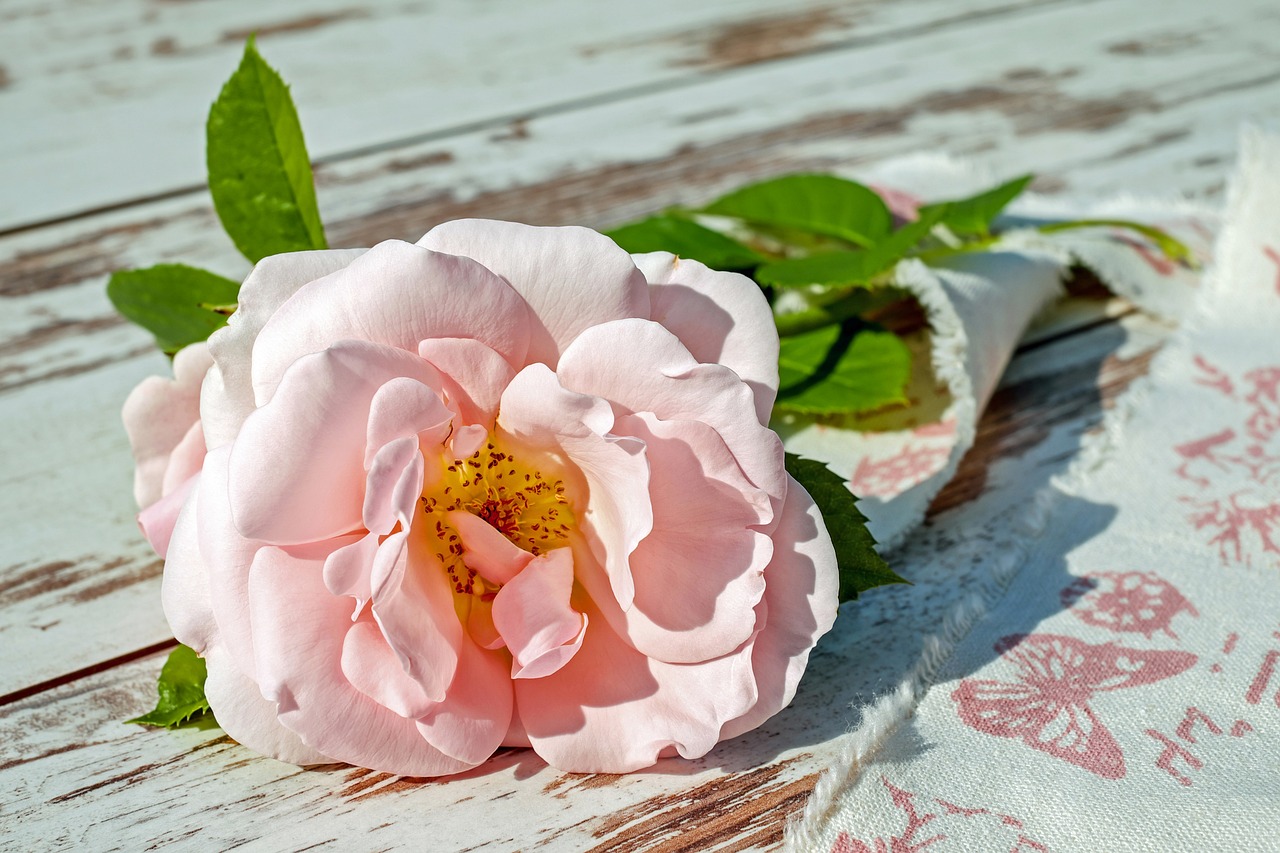
Baths
Adding a few drops of essential oil to a warm bath can provide a relaxing and aromatic soak that soothes both body and mind.
Enhancing your self-care routine with essential oils can elevate your bath experience to new heights of relaxation and rejuvenation. By adding a few drops of your favorite essential oil to a warm bath, you not only treat your senses to a delightful aroma but also unlock a multitude of therapeutic benefits that nurture both your body and mind.
Physical Relaxation: The warm water of your bath naturally relaxes tense muscles and the addition of essential oils takes this relaxation to the next level. As you soak in the fragrant water, the oils penetrate your skin, releasing built-up tension and helping your muscles unwind. This makes it an ideal practice after a long day or an intense workout, soothing away physical fatigue and discomfort.
Stress Reduction: The aromatic molecules from essential oils are inhaled as you soak and they have the power to trigger profound emotional responses. Lavender, for example, is known for its calming properties and can help reduce stress and anxiety levels. The bath becomes a tranquil sanctuary where you can escape the pressures of daily life, allowing your mind to find calm and balance.
Improved Sleep: If you struggle with insomnia or irregular sleep patterns, incorporating essential oils into your bath routine can promote better sleep quality. Scents like chamomile and ylang-ylang are known for their sleep-inducing qualities, helping you drift into a peaceful slumber after your aromatic soak.
Skin Nourishment: Essential oils can offer skincare benefits, too. Oils like rosehip, jojoba or tea tree can be added to your bath to hydrate and rejuvenate your skin. They help maintain your skin’s natural moisture balance, leaving it soft and supple. The bathwater’s warmth opens your pores, allowing these oils to penetrate deeply and work their magic.
Mood Enhancement: Different essential oils can uplift your mood and boost your spirits. Citrus oils like orange or lemon are invigorating and can help chase away feelings of lethargy or sadness. This mood-enhancing aspect of aromatherapy adds an extra layer of emotional well-being to your bath experience.
Respiratory Relief: If you’re feeling congested due to allergies or a cold, eucalyptus or peppermint essential oils can be a game-changer. Their menthol-like properties can help clear your sinuses and provide relief from respiratory discomfort as you inhale the steamy vapor.
Mindfulness and Self-Care Ritual: Bathing with essential oils is not just about physical benefits; it’s also a form of self-care and mindfulness. Taking the time to prepare your bath and immerse yourself in the experience can be a meditative practice. It encourages you to be present, allowing you to let go of worries and focus on the here and now.
Incorporating essential oils into your bath ritual is a simple yet effective way to elevate your overall well-being. It transforms your bath into a holistic, healing sanctuary where you can recharge, relax and rejuvenate both your body and mind, making it an essential addition to your self-care regimen.
Explore this link for a more extensive examination of the topic: 8 Refreshing Spring Essential Oil Blends To Rejuvenate Your Senses
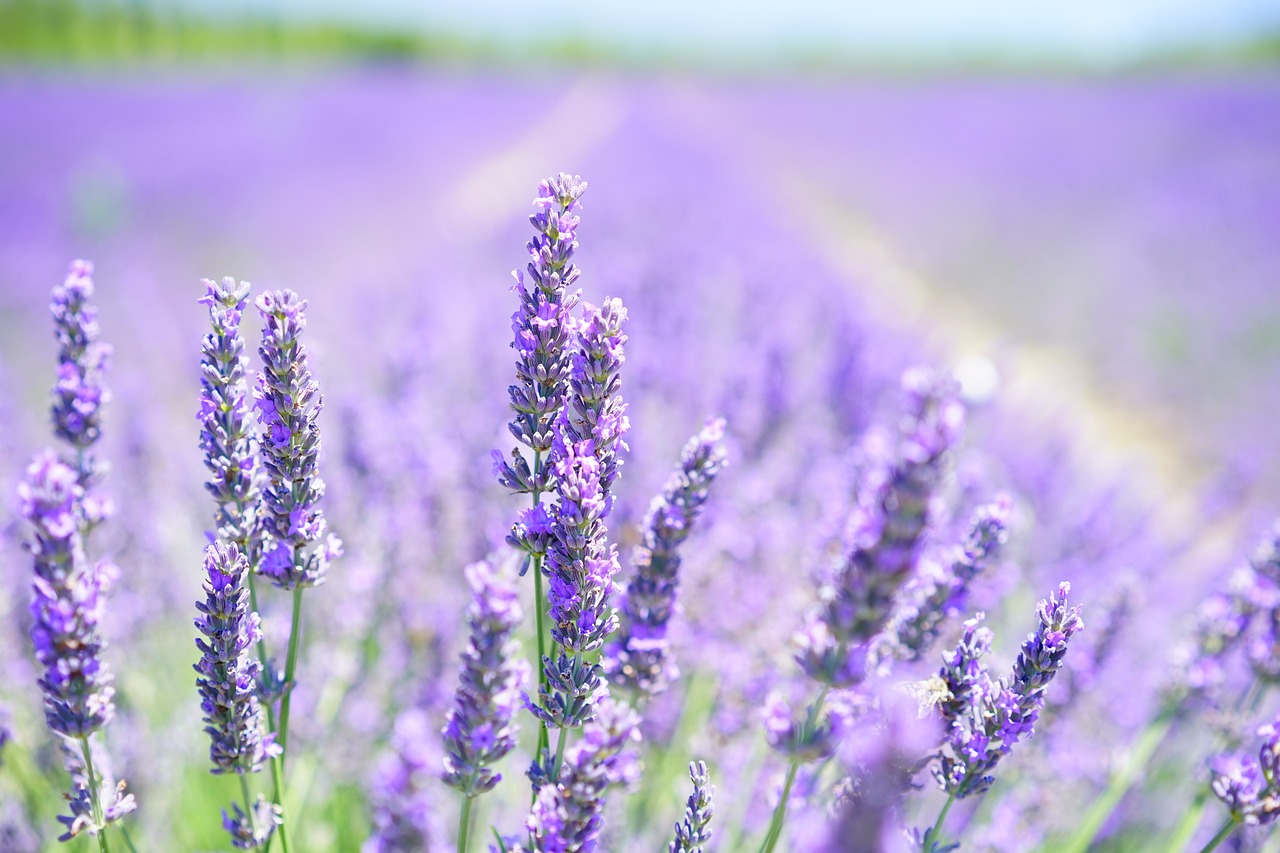
Inhalation
Inhaling essential oils directly from the bottle or through steam inhalation can help alleviate respiratory issues and provide mental clarity.
Inhaling essential oils directly from the bottle or through steam inhalation is a natural and holistic approach to improving not only respiratory health but also overall well-being. This ancient practice harnesses the therapeutic power of aromatic plant compounds to create a harmonious synergy between the body and mind.
Enhanced Respiratory Relief: Essential oils such as eucalyptus, peppermint and tea tree have been renowned for their ability to open up airways and ease congestion. Inhaling these oils directly from the bottle or through steam inhalation can provide immediate relief from symptoms of respiratory conditions like sinusitis, allergies and the common cold. The aromatic molecules penetrate deep into the lungs, helping to break down mucus and soothe inflamed tissues, promoting easier and more comfortable breathing.
Mental Clarity and Focus: Beyond their physical benefits, essential oils also have a profound impact on mental clarity and cognitive function. Scents like rosemary, lavender and lemon can enhance alertness, concentration and memory. Inhaling these oils during a study session or work task can help you stay focused and energized. The aromatic experience can also alleviate stress and anxiety, paving the way for clearer thinking and improved decision-making.
Emotional Balance: Aromatherapy, as this practice is often called, is known for its ability to influence emotions and mood positively. Essential oils like lavender, chamomile and ylang-ylang have a calming and uplifting effect on the mind. Inhaling these oils can help reduce stress, anxiety and even symptoms of depression. By achieving emotional balance, you can think more clearly and make better choices in your daily life.
Customized Healing: One of the beauties of using essential oils for inhalation is the ability to tailor your experience to your specific needs. Different oils can be blended to address various health concerns. For instance, a combination of eucalyptus and peppermint can provide superior respiratory relief, while adding a touch of citrus oils like orange and grapefruit can boost mood and vitality.
Natural and Safe: Unlike synthetic fragrances and chemical inhalants, essential oils are natural and safe when used properly. They lack the harmful side effects often associated with pharmaceuticals, making them an attractive option for those seeking a holistic approach to wellness. Nevertheless, it’s crucial to consult with a healthcare professional or aromatherapist to ensure safe and effective use, especially if you have underlying health conditions or are pregnant.
Mind-Body Connection: Inhaling essential oils transcends the physical realm by tapping into the mind-body connection. The act of consciously inhaling these aromatic compounds can serve as a mindful practice, grounding you in the present moment. This mindfulness can contribute to a sense of overall well-being, reducing stress and promoting emotional resilience.
In conclusion, inhaling essential oils directly from the bottle or through steam inhalation offers a multifaceted approach to health and wellness. It addresses respiratory issues, enhances mental clarity and nurtures emotional balance. As we continue to explore the healing potential of nature’s aromatic treasures, this practice remains a valuable tool for achieving holistic health in our fast-paced, modern lives.
For additional details, consider exploring the related content available here Harnessing the power of essential oils – Pranachic
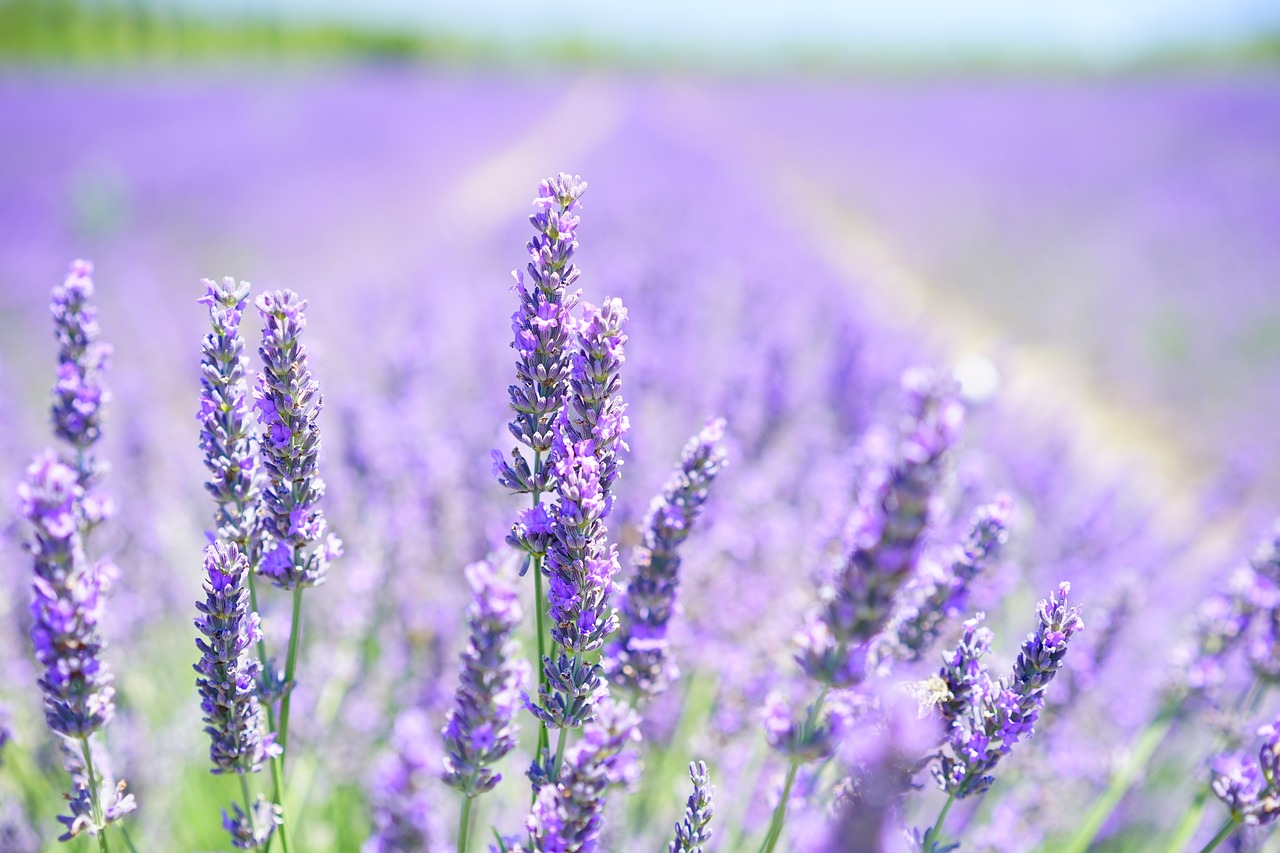
Topical Application
Some essential oils can be diluted and applied topically to the skin for targeted benefits, such as pain relief or skin rejuvenation.
Some essential oils can be diluted and applied topically to the skin for targeted benefits, such as pain relief or skin rejuvenation. This practice, known as aromatherapy or topical application of essential oils, has gained popularity for its potential therapeutic effects on various aspects of physical and emotional well-being.
Pain Relief: Certain essential oils, like lavender, eucalyptus and peppermint, possess natural analgesic properties. When diluted with a carrier oil and gently massaged onto sore muscles or joints, these oils can provide relief from discomfort and muscle tension. This approach is often favored by individuals seeking natural alternatives to over-the-counter pain relievers.
Skin Rejuvenation: Many essential oils offer benefits for the skin, from improving its appearance to addressing specific skin concerns. For example, tea tree oil is renowned for its antibacterial properties and is commonly used to combat acne and blemishes. On the other hand, oils like rosehip and frankincense can help reduce the appearance of scars and fine lines, promoting a more youthful complexion. When applied topically, these oils can be a valuable addition to your skincare routine.
Emotional Well-being: The practice of applying essential oils topically isn’t limited to physical benefits; it can also have a significant impact on emotional well-being. Aromatherapists often recommend the topical application of oils like lavender, chamomile or bergamot to help manage stress, anxiety or sleep disturbances. A few drops of these oils diluted in a carrier oil can be massaged onto pulse points or added to a warm bath for a calming and soothing effect.
Hair Care: Essential oils can also be beneficial for maintaining healthy hair and scalp. Oils like rosemary and lavender are known for their potential to promote hair growth and improve hair quality. By mixing a few drops of these oils with a carrier oil and massaging them into the scalp, you can nourish the hair follicles and enhance the overall condition of your hair.
Safety Considerations: While topical application of essential oils can offer numerous benefits, it’s crucial to exercise caution. Essential oils are highly concentrated and potent and some individuals may be sensitive or allergic to certain oils. Always perform a patch test before applying any essential oil to a larger area of the skin and consult with a qualified aromatherapist or healthcare professional for personalized guidance.
Incorporating essential oils into your topical wellness routine can be a natural and enjoyable way to address a variety of physical and emotional concerns. Whether you seek relief from aches and pains, desire healthier skin and hair or simply want to enhance your overall well-being, the world of essential oils offers a diverse array of options to explore and enjoy.
For a comprehensive look at this subject, we invite you to read more on this dedicated page: 8 Refreshing Spring Essential Oil Blends To Rejuvenate Your Senses

Aromatherapy and essential oils offer a fragrant and holistic approach to well-being. The scents of flowers, captured in these precious oils, have the power to evoke deep emotions, enhance our mood and promote physical and mental balance. Whether you’re seeking relaxation, stress relief or emotional support, the enchanting world of floral aromas holds a myriad of therapeutic possibilities. So, next time you inhale the intoxicating fragrance of a flower, remember that you can harness its essence to enhance your health and overall quality of life through the art of aromatherapy.
Aromatherapy and essential oils offer a fragrant and holistic approach to well-being. The scents of flowers, captured in these precious oils, have the power to evoke deep emotions, enhance our mood and promote physical and mental balance. Whether you’re seeking relaxation, stress relief or emotional support, the enchanting world of floral aromas holds a myriad of therapeutic possibilities. So, next time you inhale the intoxicating fragrance of a flower, remember that you can harness its essence to enhance your health and overall quality of life through the art of aromatherapy.
Imagine strolling through a blooming garden, each flower releasing its unique fragrance, carrying with it the essence of nature’s beauty. Aromatherapy allows us to bottle these exquisite moments and carry them with us, ready to infuse our daily lives with their healing powers.
Roses, for example, are known for their delicate and romantic scent. Inhaling rose essential oil can transport you to a state of tranquility, soothing away the stresses of the day. This exquisite flower’s essence isn’t just about its lovely aroma; it can also help alleviate anxiety, reduce feelings of sadness and promote self-love. Rose essential oil isn’t just a fragrance; it’s an emotional embrace, reminding you to nurture your inner self.
Lavender, on the other hand, offers a calming and soothing aroma reminiscent of a peaceful meadow. Inhaling lavender essential oil can melt away tension, promote restful sleep and even relieve headaches. It’s like a gentle lullaby for your senses, guiding you into a state of relaxation and rejuvenation.
Jasmine, with its sweet and exotic fragrance, can spark feelings of passion and sensuality. Inhaling jasmine essential oil can awaken your senses, boost self-confidence and enhance your emotional connection with yourself and others. It’s a reminder that life should be celebrated and sensuous pleasures are a vital part of holistic well-being.
The power of floral aromas doesn’t stop at emotional healing. These oils can also aid in physical well-being. Eucalyptus, with its invigorating scent, can clear your airways and help you breathe more easily, especially during cold and flu seasons. Peppermint, with its refreshing and minty aroma, can provide relief from nausea, headaches and fatigue.
Incorporating floral aromas into your daily routine is easy and enjoyable. You can use diffusers to fill your home with the healing scents of flowers or you can create personalized essential oil blends for massages, baths or even as natural perfumes.
As you embark on your aromatic journey, remember that these floral essences are not just pleasant fragrances; they are keys to unlocking the potential for greater well-being, both physically and emotionally. So, let the flowers be your allies in your pursuit of a healthier and more balanced life. The world of aromatherapy is a fragrant and enchanting one, waiting to enhance your health and elevate your overall quality of life.
For additional details, consider exploring the related content available here Influence of Fragrances on Human Psychophysiological Activity …
More links
Explore this link for a more extensive examination of the topic: Aromatherapy Essential Oils Guide | Young Living Blog
